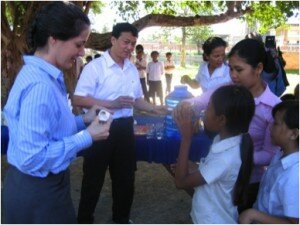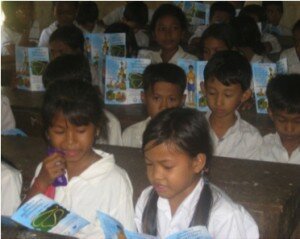Kim Koporc is director of Children Without Worms and has contributed to End the Neglect in the past. She recently wrote a piece on school deworming for ABC News’ “Save a Life” initiative, a year-long project that brings to light the most prominent global health issues affecting the poorest of poor throughout the world. Ms. Koporc’s contribution is below:
By Kim Koporc, Director of Children Without Worms
Recently, the World Health Organization adjusted its figures to better quantify how much of the world’s population is affected by three types of parasites – roundworm, hookworm and whipworms – known collectively as soil-transmitted helminths (STH).
The new number is disconcerting. More than 800 million children on the planet are at risk of infection, and, included in those at greatest risk are school-age children (age 6 to 15) – 600 million of them – whose lives could be changed forever if not treated. Once these parasites enter the body, they sap the vital nutrients children need to grow and rob them of the energy they need to pay attention at school. Even the most energetic six year old can become appallingly lethargic, and, over time, the malnutrition can lead to a string of serious infections and eventually stunt a child’s growth forever.
While rarely fatal, an untreated infection can be the start of a lifetime of hardship – after all, children who cannot learn at school will find it even more difficult to earn a living for themselves, take care of their family and break out of the cycle of poverty.
Click here to read the post in its entirety.




